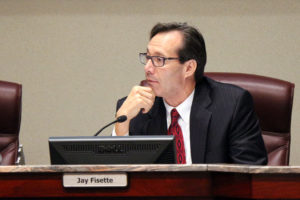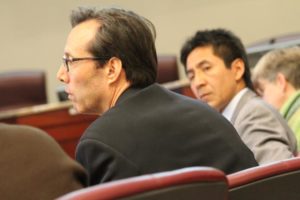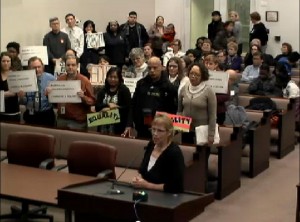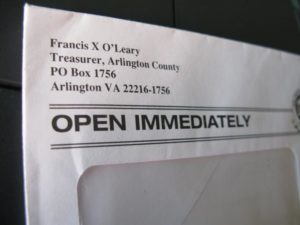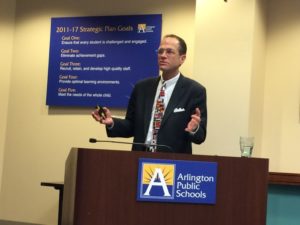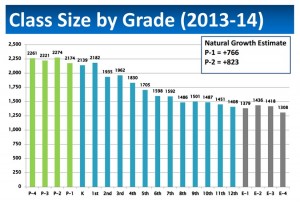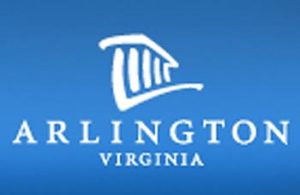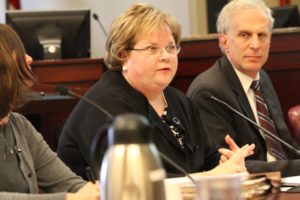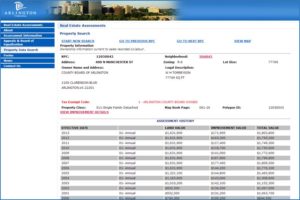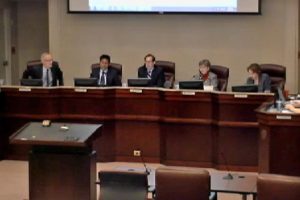 The Arlington County Board adopted a $1.15 billion budget Tuesday night.
The Arlington County Board adopted a $1.15 billion budget Tuesday night.
The Fiscal Year 2015 budget trims one cent from the county’s real estate tax rate while — thanks to a rise in property assessments — adding funds for schools, road paving and high speed fiber optic infrastructure. It also maintains service levels in other areas of county government.
The real estate tax rate is now $0.996 per $100 in assessed value, bringing the annual county tax burden on the average Arlington homeowner to $7,327.
The budget includes merit pay raises for county employees, which the County Board added back into the budget after an outcry from police and firefighter employee associations.
The Board, including newly-elected member John Vihstadt, voted unanimously for the budget. Vihstadt, who was elected on a platform of fiscal responsibility, said he was pleased with the tax rate reduction and did not want “to let the perfect be the enemy of the good” in budget deliberations.
Two other Board members echoed that sentiment in voting for the budget. Libby Garvey said she didn’t approve of the budget’s cut to mental health services for prison inmates (a grant that funded an employee for that task had run out) and accused the Board of squirreling away transportation money in various funds with the intention of, at some point, using it for streetcar projects, which she opposes.
Walter Tejada spoke out against budget guidance that directs the county manager to study the possibility of privatization and outsourcing Volunteer Arlington, which promotes and coordinates volunteer opportunities.
Other budget guidance for the manager (which was added by the Board outside the normal public budget process) included:
- A request for a report by the end of the year on the financial sustainability of Artisphere
- Enhancement of the county’s internal audit functions and the establishment of a fraud and waste hotline
- Improved parking ticket adjudication for tickets issued in error
- A plan for a phased implementation of staffing increase for the county’s police, fire and other public safety departments
The county’s press release on the budget passage, after the jump.


